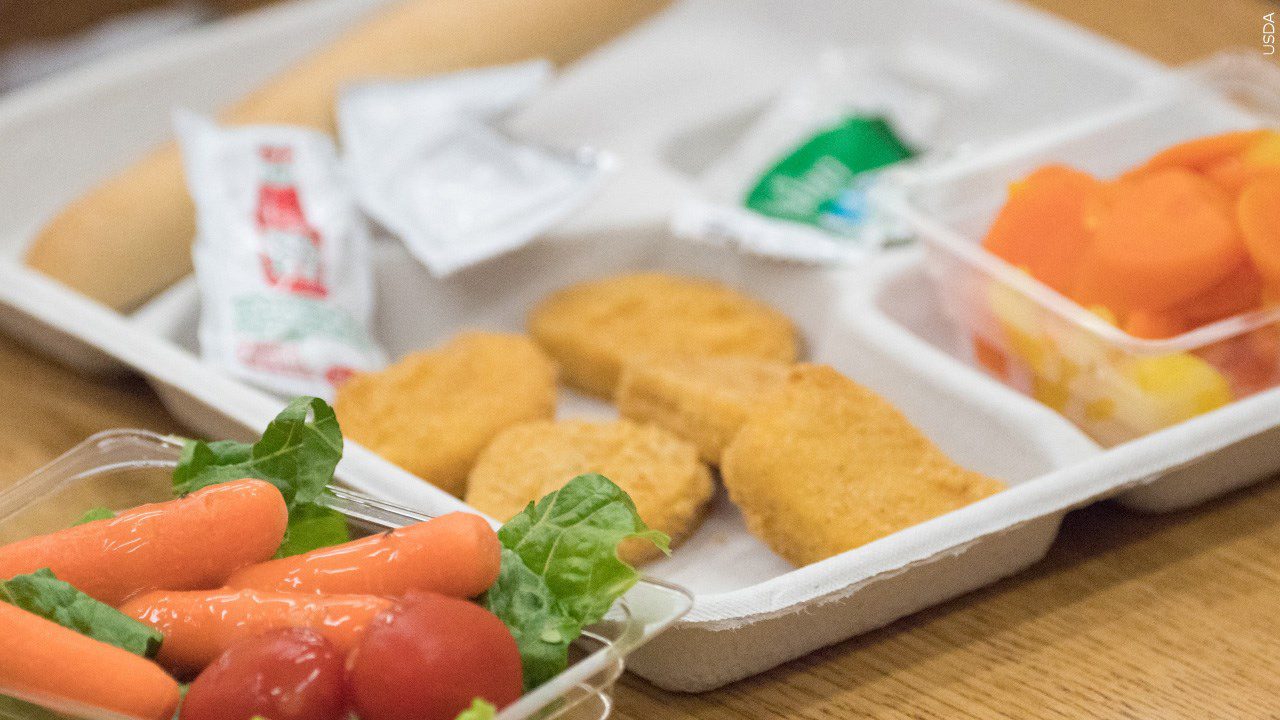Minnesota Senate approves free school meals bill

School lunch. (USDA, File)
The Minnesota Senate has approved a bill to guarantee breakfast and lunch for students across the state. The Minnesota House passed the companion bill last month. The bill will now head to Governor Tim Walz for his signature. The House will first have to approve conformity changes made by the Senate.
According to Hubbard Broadcasting’s KSTP, the proposal applies to schools taking part in the federal school lunch program.
“Today is a tremendous victory for students, families, and schools across the state. I’ve been a teacher for over a decade, and I can tell you, firsthand, that when kids come to school hungry, learning becomes almost impossible,” Sen. Heather Gustafson (DFL-Vadnais Heights), the author of the Senate version of the bill, said. “Now that school lunch and breakfast will be available to all k-12 students, regardless of household income, we are eliminating a significant barrier to accessing an equitable and world class education that every child in Minnesota deserves. When I ran for office in 2022, education was one of my top priorities then and it’s one of my top priorities now. It’s a privilege to deliver on such a critical piece of policy and be a part of a solution to a problem I saw, for years, hinder the education of so many young students.”
Governor Walz has expressed support for the bill, saying on Twitter that he is ready to sign it into law.
As a former teacher, I know firsthand that kids can’t learn on an empty stomach. When universal school meals reaches my desk — a historic, bipartisan bill — I’ll be proud to sign it into law.
— Governor Tim Walz (@GovTimWalz) March 14, 2023
On the matter of food insecurity, another House bill to provide $5 million to Minnesota food shelves received unanimous approval, according to Hubbard station KSTP.
The bill’s author says one in six students are learning on an empty stomach, and this bill aims to end that.
If it becomes law, the state would pay schools the difference between the cost of a school meal and the reimbursement they receive from that federal program — costing the state about $388 million over fiscal years 2024 to 2025.
Those in support of the bill say taking away income requirements for the free meals would help fight student hunger.
“All families will benefit from this program,” said Rep. Sydney Jordan (DFL-Minneapolis). “Members, this is a bill that would cut costs at a time when food costs are rising.”
Opponents are concerned about the cost of the program.
Families are suffering, we do need to feed our children, but we have to do this in a reasonable, fiscally responsible way,” said Rep. Krista Knudsen, (R-Lake Shore).